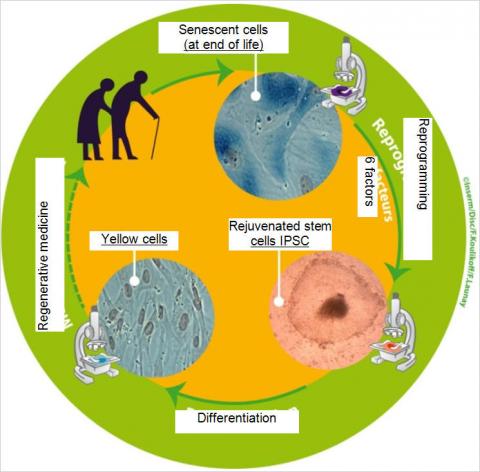Auld lang cells

New research furthers efforts to reverse the ageing process without the ethical restrictions associated with embryonic stem cell research, writes John Holden.
The altogether un-hip sounding ‘Genomic Plasticity and Ageing’ Team at the Functional Genomics Institute in Montpelier France have successfully rejuvenated cells from donors aged over 100 years.
The donors’ cells were reprogrammed in vitro to induced pluripotent stem cells (iPSC) as well as to rejuvenated and human embryonic stem cells (hESC). iPSCs, like embryonic stem cells, can divide and form all types of adult cells in the body - such as skin and liver cells, neurons and cardiac cells. This research into iPSC is a significant step forward in terms of the progress of regenerative medicine study.
Reprogramming like this makes it possible to reform all human cell types without the ethical restrictions related to using embryonic stem cells. Work of this kind on iPSC cells has been carried out since 2007 but scientists encountered various problems, not least the senescent (or final) stage of cellular aging where there were frequently obstacles blocking the use of the technique for therapeutic use in elderly patients.
In this recent study, the research team used a different strategy by reprogramming cells using a “cocktail” composed of six genetic factors (OCT4, SOX2, C MYC, KLF4, NANOG and LIN28), while also removing signs of ageing. The researchers were able to prove that the iPSC cells had the ability to transform all types of human cells. In other words, the artificial cells have the physical characteristics of youthful cells, both in terms of their reproductive abilities and their cellular metabolisms.
Samples were initially taken from 74-year-old skin cells. Using the “cocktail” of six genetic factors the senescent cells of the 74-year old skin that were programmed into artificial iPSC cells reacquired the characteristics of embryonic pluripotent stem cells. This led the team to conduct more tests on even older cells taken from donors aged 92, 94 and 96 and up to 101 years old. “Our strategy worked on cells taken from donors in their 100s,” says Jean-Marc Lemaitre, researcher at the Functional Genomics Institute for the Inserm project, as it is known. “The age of cells is definitely not a reprogramming barrier….this research paves the way for the therapeutic use of iPS, insofar as an ideal source of adult cells is provided, which are tolerated by the immune system and can repair organs or tissues in elderly patients.”
